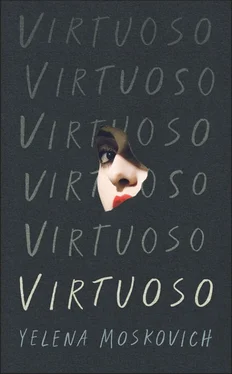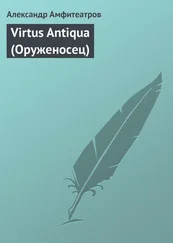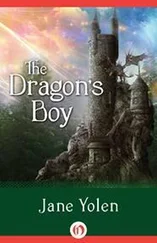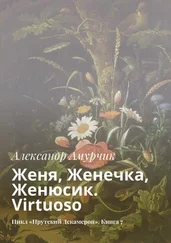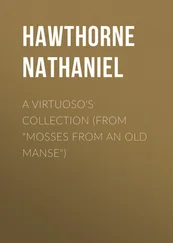Yelena Moskovich - Virtuoso
Здесь есть возможность читать онлайн «Yelena Moskovich - Virtuoso» весь текст электронной книги совершенно бесплатно (целиком полную версию без сокращений). В некоторых случаях можно слушать аудио, скачать через торрент в формате fb2 и присутствует краткое содержание. Город: London, Год выпуска: 2019, ISBN: 2019, Издательство: Serpent's Tail, Жанр: Современная проза, на английском языке. Описание произведения, (предисловие) а так же отзывы посетителей доступны на портале библиотеки ЛибКат.
- Название:Virtuoso
- Автор:
- Издательство:Serpent's Tail
- Жанр:
- Год:2019
- Город:London
- ISBN:978-1-7881-6025-4
- Рейтинг книги:3 / 5. Голосов: 1
-
Избранное:Добавить в избранное
- Отзывы:
-
Ваша оценка:
- 60
- 1
- 2
- 3
- 4
- 5
Virtuoso: краткое содержание, описание и аннотация
Предлагаем к чтению аннотацию, описание, краткое содержание или предисловие (зависит от того, что написал сам автор книги «Virtuoso»). Если вы не нашли необходимую информацию о книге — напишите в комментариях, мы постараемся отыскать её.
Virtuoso — читать онлайн бесплатно полную книгу (весь текст) целиком
Ниже представлен текст книги, разбитый по страницам. Система сохранения места последней прочитанной страницы, позволяет с удобством читать онлайн бесплатно книгу «Virtuoso», без необходимости каждый раз заново искать на чём Вы остановились. Поставьте закладку, и сможете в любой момент перейти на страницу, на которой закончили чтение.
Интервал:
Закладка:
You said, Come for me.
Even before, do you understand, before my brother started losing his hearing and before Milena was dug up, before my petty life, before the Berlin Wall was built and smashed, before the borders were proclaimed and violated, I don’t know if you would understand, I mean before Jesus Christ, before microbes, in the astrological gases, wasn’t there something of me, and wasn’t that something of me already coming for you?
But then that something got a body and such, and you know, matter and non-matter, to align all that, it takes a lifetime, at best, most of the time it’s just us, finding matches for our doubt. But everyone wants to believe. I mean, everything, everything believes.
Even a stone, yes, believes itself a bulb waiting to bloom. Even that stone, the one in the palm of a violent intention, the one that is swung and that breaks the skin of another, even upon contact, the stone believes it has a gentle face that will… petal… out… one… day…
So I spent my childhood waiting. Waiting for a significant sort of pain like a starting point. To begin. I wanted to finally begin. All that being, without a beginning – girlhood was a too-hot cup of tea I had to keep carrying back and forth without spilling and, of course, the ridges of my hands burnt, a banal inflammation, not yet the Great Pain, the starting point. Womanhood was our solution. Not just in Prague, everywhere, everywhere, wasn’t it? Wasn’t it like that for you, too? Our solution to the anxiety of non-being, of waiting to begin. I couldn’t wait to have a grown woman’s body, do you understand, so life could finally, truly… hurt.
I was so ashamed of our kiddy pain, squeaky, clumsy, Zorka and I prowling for credibility, asking when, when would life hurt in a womanly way, all of it, my ambition and my intellect and – the limbs of me that still, despite what everyone told me without telling me, believed themselves to be touchable, though no one touched me, not even to violate me, no one did (except Zorka, and that’s a very long story and with her, I had no choice but to play it cool, to be a precious stone, hard-faced, restrained).
But still, I hated that part of me, the very small mouth of me, the wanting mouth, despite all reason, wanting to be touched.
I was a child, then I was brainy, then I was on my own. I’m afraid, yes, that I missed something. That’s why I was afraid to kiss you, that you would feel that lack with your tongue, that you would taste it on me. I missed becoming a woman, because I spent too much time asking, when will it begin, when, when, and suddenly I was asking, when will it end, when, when, and I didn’t savour the way life hurt already, I didn’t dare to whimper, but I was screaming the whole time, for life, for life, for life, so suddenly, last night, between my mouth and yours—
“Those books, in the living room, they’re all my former wife’s…” Aimée began. “What I mean is, I guess I should tell you, just that… I used to love someone very much… I’m sorry, I didn’t mean to start off like that, I… I don’t know where to begin, but… suddenly it was the end and I didn’t know what to do with the living I still had left to do… without her, so… you’re the first person I’ve—”
Aimée pursed her lips together and let them go.
“Me too,” Jana said.
“You too… what?” Aimée smiled.
“I’m also… a little… scared.”
Party time
Olivier hadn’t called Aimée since his messy break-up with Angelo, so when she saw his name on the caller ID she had assumed he was having a relapse and picked up the phone ready to console. To her surprise, his voice was chirpy, joke-spun.
“Come to the party, Aimée!” he heralded.
Aimée was caught off guard, unprepared for her isolation to be challenged.
“I can’t… I mean – maybe you should come over or we can get a coffee, it’s been years and I just don’t know these people.”
But Olivier explained that it was at his new boyfriend’s place, and all his friends would be there, and his boyfriend was turning twenty-five and Olivier was turning forty-five this year, and then he started explaining to Aimée that he just wants one person there to be sincere to him.
“I know I’m being insecure about it,” Olivier said. “It would just mean a lot to me, to have you there…”
“Is Claire going to be there?”
“No, she’s not. Don’t worry. Plus bring whoever – by the way, wait, are you – that’s it! You totally sound like you’re seeing someone!”
“I’m not – I mean, it’s recent, so—”
“Aimée, I’m so happy for you, chérie, this is exactly what you need! Bring her!”
“I’ll think about it, okay…?”
“Please, please, please, please—”
“I’ll—”
But before Aimée could finish, Olivier was smacking a flutter of kisses into the phone and exhaling a long “Thank you” with a certain gravity that made Aimée think of her thirteenth birthday, the way she filled her mouth with air, and gusted towards the constellation of flame-tipped candles flagged into thin white frosting of the cake placed on the table by her father’s two hands.
Olivier had taken the women’s coats and the bottle of red from their hands and said Welcome. He laid the coats on the white-toned bed in the bedroom, which was simply decorated, a sensitive oblong cactus on the floor, next to a lamp, then some bare nails in the white wall, onto which were pinned certain photos of fabric, one grainy blue wool, another a stiff yellow linen.
“So, this is who I’ve been telling you so much about, this is Aimée,” Olivier beamed.
“Hello Aimée,” Erki said in a uniform tone.
Erki was a designer, originally from Estonia. He was one of those whizz kids, a hot new thing who had learned French fluently, spoke Estonian, German and Russian, and a bit of Finnish. He was raised by a single mum who cleaned houses and took young Erki along to help. Erki got into trouble at school. He got caught kissing a boy, then beat another one up with a rock until his face was unrecognisable.
“Stay away from boys,” his mother told him, “and lend me hand.”
She gave him things to sew up and mend. He ironed and washed and folded for her. When there were extra scraps, he made odd things out of them that made his mother laugh.
Even if now he was making more than ten times her salary, he still kept his own place simple and spotless.
In Paris, he’d found himself an entourage he called the EB, the Eastern Bloc, who were the romantic cowboys of their countries’ cultural and economic isolation, and put their childhood disparities into fabrics, cuts and fashion statements. In the folds, seams, zippers, leather, those memories became Western fetish of the failed Communist dream.
Erki stood with reserve, his flat reddish-blond hair parted perfectly in the middle, slicked down just past his jaw and tucked neatly behind his ears. In one earlobe was a thick metal ring, and in the other a stud. His bottom lip stuck out from his underbite. His marigold-coloured hoodie was tucked into his high-waisted trousers, looped with a thick leather studded belt, the marigold sleeves overly long, dangling past his hands.
“And this is Jana,” Aimée put her hand on Jana’s back, then slid it around her waist.
“ Ot kuda tih ?” Erki asked flatly, in a slightly accented Russian.
“ Iz Czeskaya Republika ,” Jana answered in Russian. “But I live here now,” she switched back to French.
“Jana speaks six languages,” Aimée added.
Читать дальшеИнтервал:
Закладка:
Похожие книги на «Virtuoso»
Представляем Вашему вниманию похожие книги на «Virtuoso» списком для выбора. Мы отобрали схожую по названию и смыслу литературу в надежде предоставить читателям больше вариантов отыскать новые, интересные, ещё непрочитанные произведения.
Обсуждение, отзывы о книге «Virtuoso» и просто собственные мнения читателей. Оставьте ваши комментарии, напишите, что Вы думаете о произведении, его смысле или главных героях. Укажите что конкретно понравилось, а что нет, и почему Вы так считаете.
